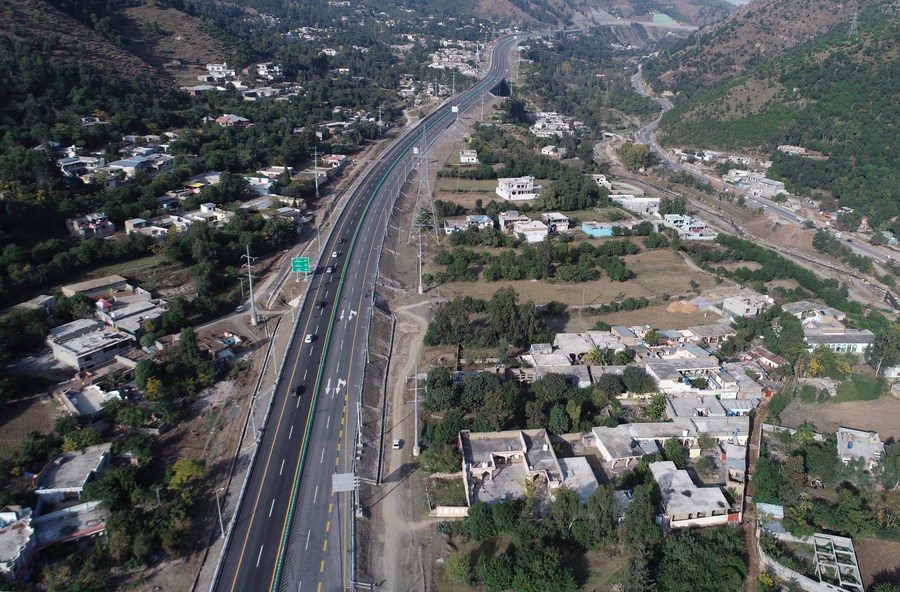Experts say Belt and Road Initiative promotes regional connectivity
Experts from eight countries at a video conference on Wednesday said that the China-proposed Belt and Road Initiative (BRI) is based on principles of equality, reciprocity and mutual benefit, and is the way forward by promoting regional connectivity.
Experts from eight countries at a video conference on Wednesday said that the China-proposed Belt and Road Initiative (BRI) is based on principles of equality, reciprocity and mutual benefit, and is the way forward by promoting regional connectivity.

Photo taken on Nov. 18, 2019 shows a view of the expressway section of the Karakorum Highway (KKH) project phase two in Pakistan. [File photo/Xinhua]
The online seminar, convened by a Pakistan think tank — the Pakistan-China Institute (PCI), was attended by participants from Afghanistan, Bangladesh, Pakistan, China, Nepal, Kazakhstan, Myanmar and Sri Lanka.
Chairman of the Pakistani Senate's Standing Committee on Foreign Affairs Mushahid Hussain Syed, who also serves as the head of PCI, termed the BRI as the biggest and most significant development initiative of the 21st century.
"CPEC (the China-Pakistan Economic Corridor), as a flagship of the BRI, is already a success story and has entered its second phase successfully. Energy and infrastructure projects have been completed on schedule, 75,000 Pakistanis have got jobs in the BRI projects and 28,000 Pakistani students are studying in China," Hussain said.
He also thanked China for support to Pakistan during the COVID-19 pandemic and he mentioned the two resolutions passed by the Pakistan Senate on Feb. 12 and May 14 respectively in which the parliament of Pakistan appreciated China's role and support.
The participants highlighted that by providing connectivity, the initiative has made landlocked countries like Afghanistan and Nepal to be land-linked and be able to access a greater market.
The participants also rejected so-called "debt trap" as in the case of Pakistan and Sri Lanka and said that total debt from China is a very small percentage of what is owed to other countries or multilateral institutions, according to a statement issued by the PCI at the conclusion of the conference.
The statement said the participants also underlined the need for global interdependence to forge closer cooperation to tackle common challenges like the COVID-19 pandemic and rejected the notion of demonization or stigmatizing any country using the virus as a political weapon or targeting BRI on geopolitical grounds.

